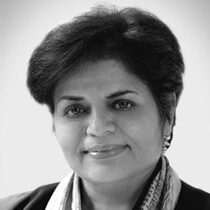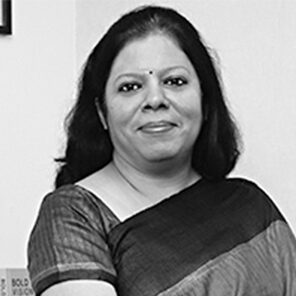Vice-Chancellor Search
Confidentiality
All individuals with access to candidate information are committed to upholding highest standards of confidentiality.
An applicant’s consent will be sought before any material or information is shared with others.
About Krea University

University Vision 2025
Krea was originally conceived in 2016, with a mission to help humanity prepare for an unpredictable world. The journey towards this mission was considered in a phased manner: 2016-2019, 2020–2025, and so on. The first phase of conception – which involved laying the foundations for the university and commencing operations – has been successfully completed. Krea University today operates out of a 40-acre campus in Sri City, Andhra Pradesh, with 200 additional acres of land for future expansion. Strong initial cohorts of faculty and students are in place.
As Krea enters the second phase of its journey, the Krea Innovation Taskforce has begun a consultative process of developing a collective and shared vision of the University’s goals and expectations for the next five years. This process is likely to reach an initial conclusion by December 2020. Delivering on Krea’s goals for 2025 – in the context of the unpredictable world of the past several months – will require extraordinary agility and collaboration. Leading Krea through this critical phase 2 is the primary expectation of the incoming Vice-Chancellor.

The role
Type of Employment
Location
Compensation
Term of Employment
Role Responsibilities
- Developing and delivering on 2025 vision, spanning learning, research and resources, and including program offerings and pathways, pedagogy, research focus and real world experiences
- Building sound curriculum development practices and a curriculum with emphasis on interwoven learning and supported by innovative pedagogy
- Mapping faculty requirements, identifying and hiring faculty and enabling faculty development
- Developing and delivering new programs including the 4th year of advanced studies, masters, PhD and other programs
- Overseeing academic affairs and administration, including the establishment of learning support offices with a view to enhance the learning experience while optimising resources
- Fostering a culture of research and innovation and mentoring faculty in their research and pedagogical journey
- Developing a robust assessment philosophy, with a focus on continuous assessment and learning outcomes
- Overseeing the student life experience and integrating externships, internships and other real world experiences and exposure into the student learning experience
- Being responsible for annual budgets, income, expenses and operating surplus / deficit
- Leveraging synergies between SIAS, GSB and the research centres
- Strategy and operations of the research centres and GSB
- Outreach and admission functions of the university to support student admissions goals of quality, diversity and numbers enrolled
- Partnerships and Research Support functions of the university to identify and nurture domestic and international partnerships to support students, faculty, research programs and the overall mission of the university
- Fundraising efforts of the university, including meetings with donors, presentations at fundraise events, etc.
- Career services, including engaging with employers
- Enabling functions of Finance, HR & Administration, IT, Campus Operations and Projects
- Regulatory compliance including but not limited to courses offered, credits, conduct of examinations, award of degrees, disciplinary action and grievance redressal
Ideal Candidate Profile
Eligibility Criteria
Skills and Experience
- Impeccable record of integrity and ethical behaviour
- Commitment to diversity and inclusivity, for its own sake and for the sake of better outcomes
- Experience with academic administration, and folding up sleeves to deliver results, on time and on budget
- Track record of academic or scholarly excellence in research and/or teaching, in any field of study
- Ability to think innovatively and not just question the status quo, but help find better answers
- Ability to build an extraordinary faculty and staff in keeping with the University’s ethos, and developing an environment where faculty and staff members can excel and innovate
- Ability to develop ideas into plans, and put plans into action
- Ability to work professionally, collaboratively and respectfully with all colleagues, regardless of their seniority or role in the organization, in a non-hierarchical, result-oriented and efficient manner
- Deep sense of empathy and understanding of people, their motivations, strengths and vulnerabilities.
- Flair for building authentic relationships with people and inspiring them
- Passion to build a unique institution, always keeping up the primacy of the institution’s interests over oneself
- Respect for institutional structures and processes





